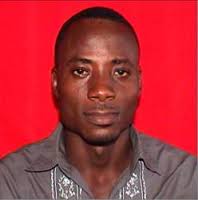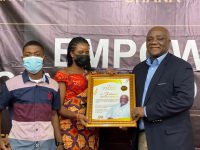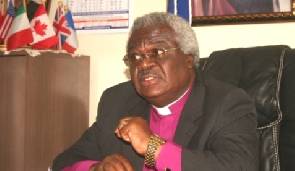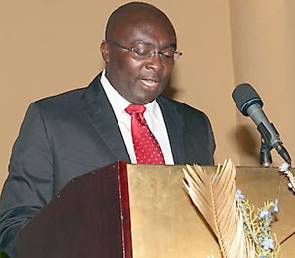 During the 2012 elections, the NPP’s major campaign message was Free Education. Just yesterday a friend wanted to know what the NPP’s campaign message is going to be in 2016, now that President Mahama has started the Progressively Free SHS. “Free Wives and Husbands perhaps,” I answered.
During the 2012 elections, the NPP’s major campaign message was Free Education. Just yesterday a friend wanted to know what the NPP’s campaign message is going to be in 2016, now that President Mahama has started the Progressively Free SHS. “Free Wives and Husbands perhaps,” I answered.
But come to think of it, the intelligence I’m gathering suggests that the major opposition political party is planning to use the country’s economic challenge for their 2016 campaign. And it will fail because the challenge with our economy is not due to mismanagement, but has something to do with “developmental hazards.” I will explain.
To begin with, I would like to make a brief important analogy which will be critical to my discourse. A house has several important features: foundation, walls, roof, doors, windows, etc. If one is asked to name the most important of these features, I’m sure most of us would be tempted to mention “roof” with the simple reason that without a roof there wouldn’t be adequate shelter, and that makes the house almost useless.
One will also argue that “foundation” is the most important, without which the house would collapse, and I would want to agree with this school of thought. Similarly, as much as good economic growth may seem the most important ingredient in the development of a country, infrastructure development is the foundation and the lifeline of a country, without which there would be no growth or development to improve the lives of millions of people.
African Development Bank (AfDB) estimates that deficient infrastructure reduces Sub-Saharan Africa’s output by about 40 percent, and believes that, to attain middle-income levels, Africa must double its investment in infrastructure. African nations at present invest about 2-3 percent of GDP in infrastructure. By contrast, China invests about 9 percent of its GDP in infrastructure projects. According to Stephen Hayes, infrastructure is probably the single most important need for Africa to develop. Stephen is the president of the Corporate Council on Africa, a group that promotes US-Africa ties.
The way a country tackles its infrastructure deficit determines its future, and I am happy to announce that Ghana has a very bright future under the leadership of President Mahama, and I will prove it!
Within about three years as president, His Excellency John Dramani Mahama has done so much in the area of infrastructure that it will be a daunting task enumerating all of them and giving details. I will need more than 25 pages to do that, so I want to be as concise and succinct as possible.
Health: In about 3 years, President Mahama has built one Teaching Hospital at Legon and expanding Tamale Teaching Hospital by 400 more beds. He is building a brand new 500-bed Military Hospital in Kumasi. He has completed or constructing 6 regional hospitals, at least 14 district hospitals, over 26 polyclinics, and more than 18 health centres, just to mention a few.
Education: More than 1,000 different projects have been executed in the second cycle level; excluding the 200-day SHS project, 73 of which are at various levels of completion. At the basic level, countless number of classroom blocks have been constructed in a bid to eliminate schools under trees and abolish the shift system.
Water: In excess of US$1.1 billion have been spent on the construction of new water systems, and expansion of some existing ones across the country. By the end of this year, 2015, Ghana would be covering 76% of the entire country, both rural and urban areas with good drinking water. This will be the second highest in Sub-Saharan Africa,
Roads: Extensive major road projects are ongoing in all 10 regions of the country; these include, the 3-tier ultra modern Kwame Nkrumah interchange, Kasoa interchange, completion of the Sofoline interchange in Kumasi, the eastern corridor roads, just to mention a few.
ICT: Construction of an 800-kilometre fibre optic ICT backbone infrastructure in the eastern corridor to provide broadband services to over 120 communities along the route from Ho to Bawku, with links to Tamale from Yendi. When completed this infrastructure would result in the reduction of bandwidth cost. This is just one of the numerous projects ongoing under ICT.
Housing: A 5,000 affordable housing project is underway at Saglemi in the Ningo District of Greater Accra Region. 168 housing units with related infrastructure have been completed and handed over to the security services. Work on additional 368 housing units under the second phase of this project has also started. Another 5,000 affordable housing units, branded “Nyame Dua Estates”, also in Kpone, is about 70% complete, just to mention a few.
Other Special Projects: expansion of Tema Port, expansion of Takoradi Port, expansion of Tamale and Kumasi Airports, construction of Ho Airport, Atuabo Free Port, Atuabo Gas plant, exploration of major oil blocs, namely: Ten, Gye Nyame, and the Volta Basin, just to mention a few of these other special projects.
Now, the bombshell! I want to reveal that one of the reasons why Ghana is going through economic challenge is because of the current massive infrastructure projects going on across the country. Even though infrastructure development is very essential as illustrated earlier on, it is very expensive, and can give some shocks to the economy of a country. Rapid and massive infrastructure development is an area which even leaders of developed economies dread to tread. Kikikikiki, and this perhaps explains why former President Kuffour abandoned almost all the major infrastructure projects he started within eight years in office: Achimota-Ofankor road, Suhum-Ayinam-Kumasi road, Sofoline Interchange, Bui Dam Project, etc; it would have exposed him big time!
We must, therefore, commend President John Dramani Mahama for his brave stance in taking difficult decisions for a positive change. He could have used those huge funds for social intervention programmes, and the complaints about hardship would have been reduced by now. But a solid foundation need to be laid for a better future before other important areas like job creation and others are strengthened. If the NPP, therefore, thinks they can use the current economic challenge as a campaign tool, then they are going to be disappointed once again because the truth would be told and the discerning good people of Ghana will listen.
Anthony Obeng Afrane





